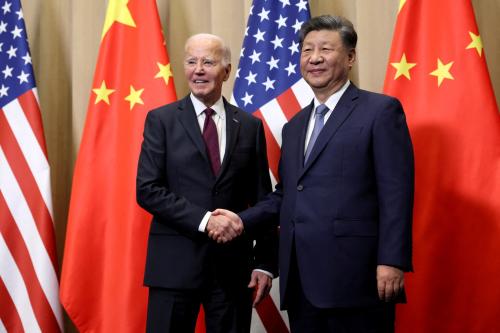“The intersection of politics and policy is a lonely place,” writes Senior Fellow Elaine Kamarck in her new book How Change Happens—Or Doesn’t: The Politics of U.S. Public Policy. In this podcast, Kamarck, founding director of the Center for Effective Public Management, touches on the ideas and examples in her book to explain why politics and policy have to come together for us to understand success and failure in U.S. politics.
Kamarck talks about “surveying the policy battlefield” in trying to understand the complexity of change. For example, why did unpopular President Harry Truman manage to get the Marshall Plan passed “with a hostile Republican Congress,” while Barack Obama, who “came into office on the heels of a robust political victory” with majorities in both houses of Congress, failed to enact climate change legislation?
The conversation ranged from how FDR’s social policies reflected American values, to whether the Affordable Care Act does, to the complexity and length of modern legislation, to whether or not elections matter and if mandates exist outside politician’s own minds.
SUBSCRIBE TO THE PODCAST ON ITUNES »
Show notes:
• Lessons from the Shutdown: Management Matters, Even for Presidents, by Elaine Kamarck
• FixGov blog
• The Semi-Sovereign People: A Realist’s View of Democracy in America, by E.E. Schattschneider
• Myth of the Presidential Mandate, by Robert Dahl
The Brookings Institution is committed to quality, independence, and impact.
We are supported by a diverse array of funders. In line with our values and policies, each Brookings publication represents the sole views of its author(s).





Commentary
PodcastThe Intersection of Politics and Policy Is a Lonely Place
December 20, 2013
Listen on
Brookings Cafeteria Podcast